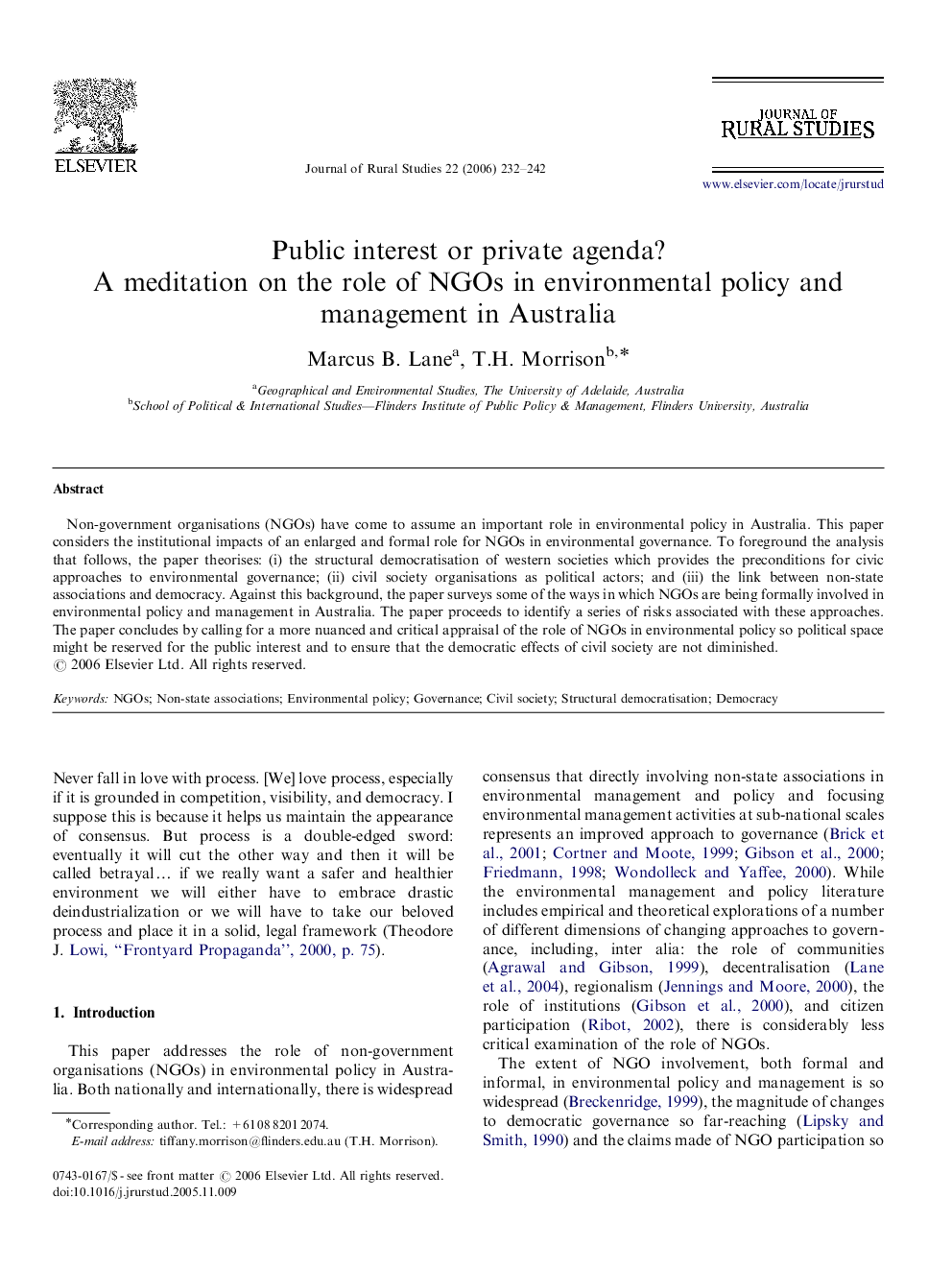| Article ID | Journal | Published Year | Pages | File Type |
|---|---|---|---|---|
| 92858 | Journal of Rural Studies | 2006 | 11 Pages |
Non-government organisations (NGOs) have come to assume an important role in environmental policy in Australia. This paper considers the institutional impacts of an enlarged and formal role for NGOs in environmental governance. To foreground the analysis that follows, the paper theorises: (i) the structural democratisation of western societies which provides the preconditions for civic approaches to environmental governance; (ii) civil society organisations as political actors; and (iii) the link between non-state associations and democracy. Against this background, the paper surveys some of the ways in which NGOs are being formally involved in environmental policy and management in Australia. The paper proceeds to identify a series of risks associated with these approaches. The paper concludes by calling for a more nuanced and critical appraisal of the role of NGOs in environmental policy so political space might be reserved for the public interest and to ensure that the democratic effects of civil society are not diminished.
